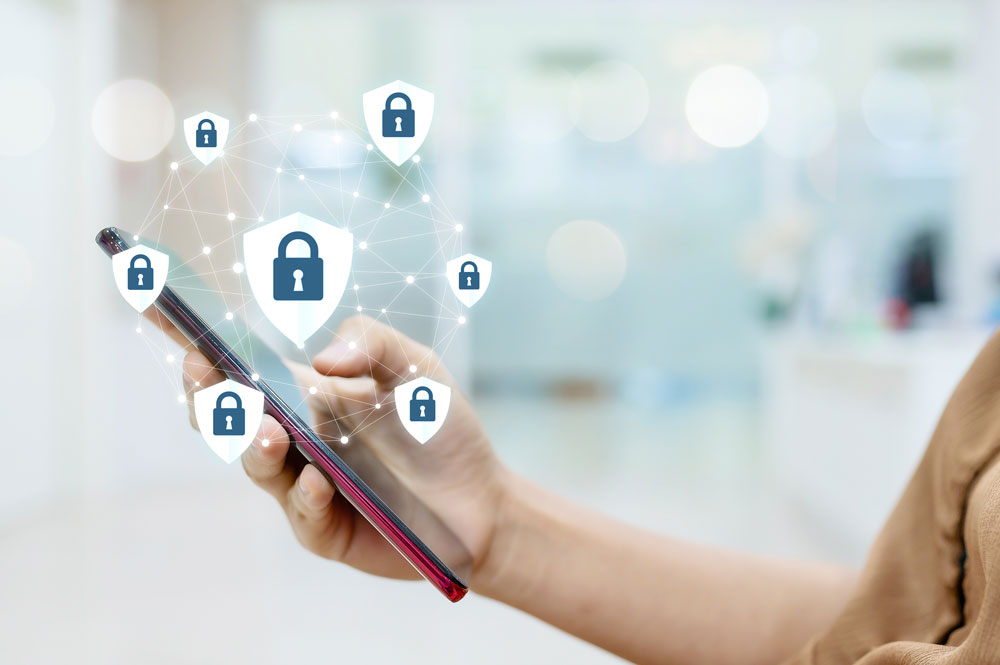Did you know cybercriminals are now targeting your mobile phone?
Cybercriminals love banking details, saved passwords, business data and even personal photos (to copy, delete then sell back to you), all of which can be found on our phones these days. Unfortunately, many of the tools that protect computers aren’t switched on by default on phones, and that makes them the perfect target for cybercriminals.
We’ve all seen the SMS messages claiming to be ‘missed calls’ or ‘package tracking’, but which actually spread viruses, but how many of us have installed anti-virus on our phones? Did you know almost 230,000 phones get infected with viruses each and every day? That’s more than 80 million a year…
How to keep your phone secure:
- Pin Codes – The Pin code to your phone is like the keys to your front door, and all your filing cabinets. If your phone is ever lost or stolen, the PIN code will stop anyone accessing or using it, but it will often act as the key to unlocking any files which are accessed remotely. Make sure a 6-digit pin code, or long password, and Face/Fingerprint ID are set up on your phone.
- Anti-Virus – Viruses exist on phones just like they do on computers. There are many different options from different vendors around to help protect your phone, install one ASAP!
- Updates – While operating system and app updates are annoying, they are also essential. Each time you see one that means the developer has found a problem that cybercriminals could exploit, so install them as soon as you can.
- Fake Apps – One sneaky way cybercriminals will try to get viruses onto your phone is to create fake apps. They will find a real company that doesn’t have an app, and use its name and logo on an app created by the cybercriminal. Unsuspecting users think they are downloading an app from a well known company, when in fact it’s a virus.
- Corporate Data – While we understand its well meaning, only set up your work emails and access corporate systems with your personal phone if your IT department allows it.
- Encryption – Encryption is a way for your phone to lock all your files while you are not using them. When switched on it means that data stolen from your phone is useless without your password.
- Lost device features – Switch on any ‘find my device’ and remote wipe features. That way if you lose your phone you can track it, or at least wipe it so no one can access all your banking details and personal photos.
Modern phones are really just small laptops, and therefore are vulnerable to the same issues, such as links from unknown senders, malware and viruses. Given how much our smart phones can access, and how much personal data they hold, we all need to be sensibly cautious in protecting our phones from cybercriminals.
Protect Your Business From Cyber Attacks
Businesses that choose to invest in a cyber security plan have access to wider range of tools to protect their data and staff. A great example is Mobile Device Management – an enrolment service for phones, tablets and laptops that applies a set of policies to the device. This ensures that both company-owned and user-owned devices meet a certain set of criteria before having access to important data.
This whitepaper covers many common questions about Mobile Device Management and a great start for any business owner or manager thinking about how to better protect their business.
If you want to know more, reach out to sa***@bi*******.au or call 1300 248 748.



